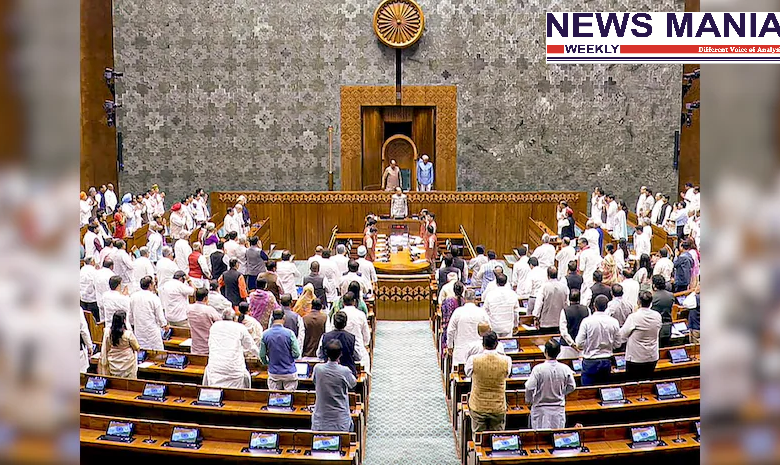Government to Present Waqf (Amendment) Bill in Lok Sabha Today

News Mania Desk/Agnibeena Ghosh/7th August 2024
The government is set to introduce the Waqf (Amendment) Bill, 2024, in the Lok Sabha on Wednesday. This proposed legislation aims to amend the existing Waqf Act of 1995, bringing notable changes to the administration and management of Waqf properties in India. One significant amendment is the introduction of the ‘district collector’ role within the Act, granting this position authority to resolve disputes related to Waqf properties.
The draft of the new Bill includes a key change in terminology, proposing that the word “Waqf” be replaced with “Unified Waqf Management, Empowerment, Efficiency and Development” in the principal Act. This change reflects a broader focus on streamlining and improving the management and development of Waqf properties.
A crucial aspect of the proposed Bill is its provision regarding government properties identified or declared as Waqf properties. According to the new legislation, any such property, whether identified before or after the commencement of the Act, will not be considered a Waqf property. This clause aims to clarify the status of certain properties and prevent potential disputes over their classification.
The Bill also empowers district collectors to adjudicate disputes between the Waqf Board and the government. If a question arises regarding whether a property identified as Waqf is actually government property, the matter will be referred to the collector with jurisdiction. The collector is tasked with conducting an inquiry to determine the property’s status and reporting their findings to the State Government. If the collector concludes that the property is government-owned, they must update the revenue records accordingly and submit a report to the State Government.
The introduction of this Bill has sparked significant reactions from various quarters, including opposition parties and Muslim organizations. The All India Muslim Personal Law Board (AIMPLB) has voiced strong opposition to the proposed amendments, stating that any interference with the nature of Waqf properties and the legal status and powers of Waqf Boards will not be tolerated. The AIMPLB has called on National Democratic Alliance (NDA) allies and opposition parties to reject the Bill and prevent its passage in Parliament.
Several opposition parties have also expressed their intention to resist the government’s efforts to amend the Waqf Act, 1995. They argue that the proposed changes could undermine the autonomy and traditional role of Waqf Boards. However, government and BJP sources assert that the Bill is necessary to enhance transparency in the management of Waqf properties across the country.
As the Waqf (Amendment) Bill, 2024, is tabled in the Lok Sabha, it is expected to prompt intense debate and discussion. The government’s rationale for the Bill centers on improving the efficiency and transparency of Waqf property management, while opposition voices raise concerns about potential overreach and the impact on the autonomy of Waqf Boards. The outcome of this legislative effort will have significant implications for the administration of Waqf properties and the broader relationship between the government and religious institutions in India.






